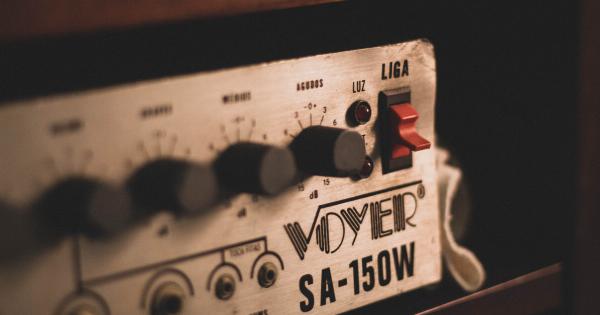Dementia is a debilitating chronic disease that affects millions of people worldwide. Despite years of research, medical experts are still struggling to find a cure for the condition.
However, new treatments are emerging, and some of them have shown promising results. These innovative approaches are revolutionizing the way dementia is being managed and treated. Here are ten of the most revolutionary approaches to treating dementia.
The Role of Artificial Intelligence in Dementia Treatment
Artificial intelligence (AI) has been a game-changer in the treatment of dementia. AI algorithms are being used to predict the progression of the disease and identify individuals who are at higher risk of developing dementia.
In addition, AI-powered tools are being used to create personalized treatment plans that address the specific needs of each patient.
The Use of Virtual Reality in Dementia Therapy
Virtual reality (VR) technology is being used to create immersive experiences that help improve cognitive function, memory, and mood in patients with dementia.
VR therapy is non-invasive, affordable, and can be tailored to meet the unique needs of each patient. Studies have shown that regular use of virtual reality improves the quality of life of dementia patients and reduces the symptoms of the disease.
The Benefits of Music Therapy for Dementia Patients
Music therapy has been found to have a positive effect on dementia patients. Music has the ability to evoke positive emotions, stimulate memories, and improve communication in patients with dementia.
Music therapy also improves the quality of life of dementia patients by reducing anxiety, agitation, and depression.
Improving Sleep Quality to Reduce Dementia Symptoms
Studies have linked poor sleep quality to an increased risk of developing dementia. Thus, improving sleep quality is a critical aspect of dementia treatment.
Sleep hygiene practices such as regular exercise, reducing caffeine intake, and keeping a consistent sleep schedule can all help improve sleep quality, reducing dementia symptoms.
The Role of Nutrition in Dementia Prevention and Management
Nutrition plays a vital role in the prevention and management of dementia. A balanced diet rich in healthy fats, lean protein, and vegetables and fruits provides the brain with the necessary nutrients to function properly.
Studies have also shown that specific diets such as the Mediterranean diet can reduce the risk of developing dementia.
The Use of Yoga and Meditation In Dementia Management
Yoga and meditation have been found to improve the cognitive function of dementia patients. These practices promote relaxation, reduce anxiety, and improve sleep quality, reducing common symptoms of the disease.
Furthermore, yoga and meditation may improve blood flow to the brain, which has long-term benefits for those with dementia.
The Importance of Social Interaction in Dementia Care
Social isolation can worsen the symptoms of dementia, leading to accelerated cognitive decline. Thus, social interaction is a crucial component of dementia care.
Caregivers can incorporate activities that encourage socialization, such as group outings, music classes, and other social activities that engaged patients in conversation and prevent social isolation.
The Use of Light Therapy in Dementia Treatment
Light therapy is becoming a popular form of treatment for dementia. Dementia patients often experience disturbed sleep patterns, confusion, and a lack of energy.
However, studies have shown that exposing these individuals to bright light during the day can reduce the symptoms. Light therapy is non-invasive, cost-effective, and has no side effects.
The Benefits of Cognitive Stimulation Therapy in Dementia care
Cognitive stimulation therapy has been found to improve cognitive function, memory, and quality of life in dementia patients. The therapy includes a range of activities designed to improve cognitive abilities, memory, and verbal communication.
The activities include puzzles, quizzes, and reminiscence therapy that help patients to recall significant events from their past.
The Use of Brain Stimulation Techniques in Dementia Treatment
Some types of brain stimulation techniques, such as electroconvulsive therapy and transcranial magnetic stimulation, have been found to have a positive effect on dementia patients.
These therapies use electromagnetic fields or electrical currents to stimulate specific areas of the brain, improving cognitive abilities and reducing the symptoms of the disease. However, these techniques are not commonly used due to the risks involved and the need for further research.



























